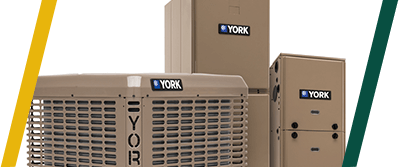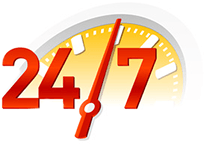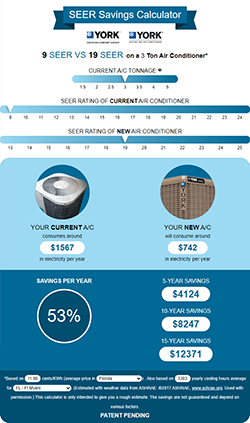A Guide for Homeowners and Property Managers
Changes are coming for the air conditioning industry that will have an impact on your choices in the area of home comfort. A final rule established by the Department of Energy (DOE) in June, 2011 set into place new energy efficiency standards for heating and air conditioning equipment, effective January 1, 2015. These updates require that all residential air conditioners, heat pumps and furnaces manufactured on or after January 1, 2015 carry higher minimum Seasonal Energy Efficiency Ratio (SEER) and Heating Seasonal Performance Factor (HSPF) ratings.
While heat pumps will carry a national required standard of 14 SEER and 8.2 HSPF (8.0 HSPF for packaged heat pumps), the DOE will now differentiate SEER rating requirements for air conditioners based on region. The U.S. has been divided into North, South, and Southwest regions, respectively. Air conditioners installed in the North region after January 1st, 2015 will be required to perform at 13 SEER or higher, whereas the required standard for the South and Southwest regions will be 14 SEER. In the Southwest region, air conditioners will have to meet an additional standard of between 11.0 – 12.2 EER (Energy Efficiency Rating).
Here is an at-a-glance visual illustration showing the efficiency standards changes, the regions, and the states belonging to each region:
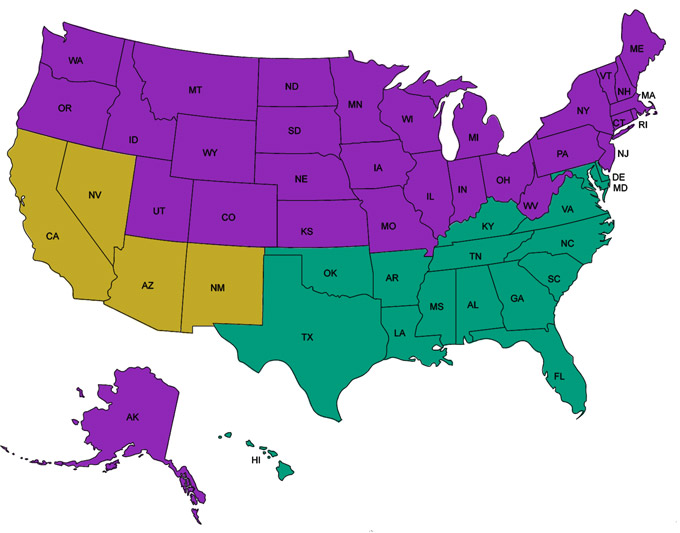
| Regions | North | South | Southwest |
|---|---|---|---|
| A/C SEER Rating | 13 | 14 | 14 (11/0 – 12.2 EER) |
| Heat Pump SEER Rating | 14 | 14 | 14 |
| Heat Pump HSPF Rating | 8.2 | 8.2 | 8.2 |
How Will These Changes Affect You?
Price Increases and Inventory Availability
How will these changes affect you, as a homeowner? While representing significant energy savings over the long run on both an individual and a national level, the first palpable impact these energy efficiency upgrades will have will likely be in the area of price increases for high efficiency equipment.
History tells us that whenever a standards regulation change of this magnitude is instituted, prices of higher efficiency equipment are always affected. Following the last major efficiency upgrade, there was a price increase for the new standard equipment of between 8-12%. The 2015 updates will likely follow suit. Although we cannot know definitively how air conditioner and heat pump prices will be affected by the new standards, we do know that an internal document circulating between manufacturers and distributors has predicted a “substantial price increase” in higher efficiency equipment.
Equally difficult to pinpoint is exactly how long the equipment that will be rendered obsolete by the new standards will be available to consumer. Although manufacturers will be allowed to continue to sell off their inventory of equipment produced prior to January 1, 2015, we know that no manufacturer will want to be stuck with shelves full of obsolete inventory. We expect that production will be cut off far ahead of the January 1st deadline, and that a large portion of the available inventory will be acquired by large national home builders in order to delay the effects of the new DOE standards on their operations. Any inventory that remains will likely be sold to distributors and consumers on an allocation only basis.

A third change that will likely occur is a downward shift in the rebates offered on high efficiency HVAC systems.
Power companies like Florida Power and Light (FPL) now offer rebates on air conditioners starting at a 13 SEER rating. Once 14 SEER rating is considered the new minimum, the rebates for these units will likely be reduced to the amount that was formerly allotted to 13 SEER systems. FPL’s rebates will likely reduce across the board, even up to the top-of-the-line 26 SEER systems. Manufacturer-issued rebates may also reflect this type of decline.

As a homeowner or property manager, what action should I take?
First, start by considering the age of your current air conditioner.The standard warranty for an air conditioner is anywhere between 5 to 12 years, while the average effective life of an air conditioner is 8-12+ years.
Here’s another, if not more important factor to consider: just how energy efficient is your current air conditioner? If you currently own, for example, a 9 SEER, 3 Ton air conditioner, did you know that upgrading to a 14 SEER unit can save you up to 36% per year in electricity costs? The yearly savings represented by upgrading to a 20 SEER air conditioner would be up to 55%! Besides these savings, other advancements in the technology built into these new, higher efficiency units will undoubtedly provide a manifold boost to your family’s comfort.
However, upgrading to a higher efficiency air conditioner or heat pump will not make sense for everyone. If you are a seasonal resident, residing in Southwest Florida only during the cooler winter months, then a 13 SEER system might adequately serve your needs. Purchasing equipment adherent to the new standard would probably provide minimal, if any, return on investment. So, if you are thinking about replacing your current air conditioner, you may want to purchase a less expensive 13 SEER system now, while the inventory still exists. Waiting until next year will force you to purchase at least a 14 SEER system, with a higher efficiency rating than would actually benefit you, at a higher cost.
Upgrading to a higher efficiency air conditioner or heat pump will not make sense for everyone. If you are a seasonal resident, residing in Southwest Florida only during the cooler winter months, then a 13 SEER system might adequately serve your needs.
If you find that your air conditioner or heat pump is due for replacement, consider the following options:
 Purchase a new system that meets the current standard. If you act soon, while these products with a 13 SEER rating are still available, you will be able to put off the entire issue for about another ten years. You’ll receive any power company and manufacturer rebates that are currently available, and seasonal residents will not be forced to opt for more energy efficiency than they need.
Purchase a new system that meets the current standard. If you act soon, while these products with a 13 SEER rating are still available, you will be able to put off the entire issue for about another ten years. You’ll receive any power company and manufacturer rebates that are currently available, and seasonal residents will not be forced to opt for more energy efficiency than they need. Upgrade to the new 2015 DOE standards-compliant equipment now. Purchasing a more energy-efficient air conditioner or heat pump ahead of the January 1st deadline will allow you to avoid the imminent price increases on this type of equipment. Plus, year-round residents can already start enjoying the added benefits that high-efficiency equipment will bring, such as lower electricity usage and reduced energy costs.
Upgrade to the new 2015 DOE standards-compliant equipment now. Purchasing a more energy-efficient air conditioner or heat pump ahead of the January 1st deadline will allow you to avoid the imminent price increases on this type of equipment. Plus, year-round residents can already start enjoying the added benefits that high-efficiency equipment will bring, such as lower electricity usage and reduced energy costs. Wait to act until after January 1, 2015. This decision will give you the benefit of knowing for certain just what the efficiency upgrades will entail and allow you to purchase the latest products, however you will no longer be able to opt for the currently-available lower cost equipment with a 13 SEER rating. You will be forced to purchase 2015 standard equipment, for higher prices, and with lower rebate potential.
Wait to act until after January 1, 2015. This decision will give you the benefit of knowing for certain just what the efficiency upgrades will entail and allow you to purchase the latest products, however you will no longer be able to opt for the currently-available lower cost equipment with a 13 SEER rating. You will be forced to purchase 2015 standard equipment, for higher prices, and with lower rebate potential.
The Benefits of Hiring a Licensed Contractor
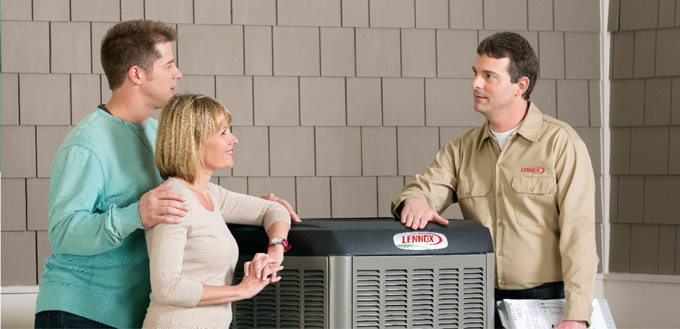
One more word of advice. No matter how you decide to handle these new 2015 energy efficiency standards, whether you upgrade your equipment now or in the future, always remember to hire a licensed contractor.
A licensed contractor has the skills, knowledge and experience, not to mention the proper tools, to advise you on the optimal air conditioner or heat pump choice for your home, and to install your new unit correctly and efficiently, the first time. They will also handle all the necessary county permits for you, and provide a higher grade of equipment than is offered by your local home improvement store.
Contact Us for More Information
If you have any questions about the DOE’s 2015 energy efficiency standards, please contact the experts at Kobie Complete Heating & Cooling, Inc at (941) 474-3691. We are your go-to resource, ready to provide guidance and peace of mind while helping you make any necessary transitions in your home.

